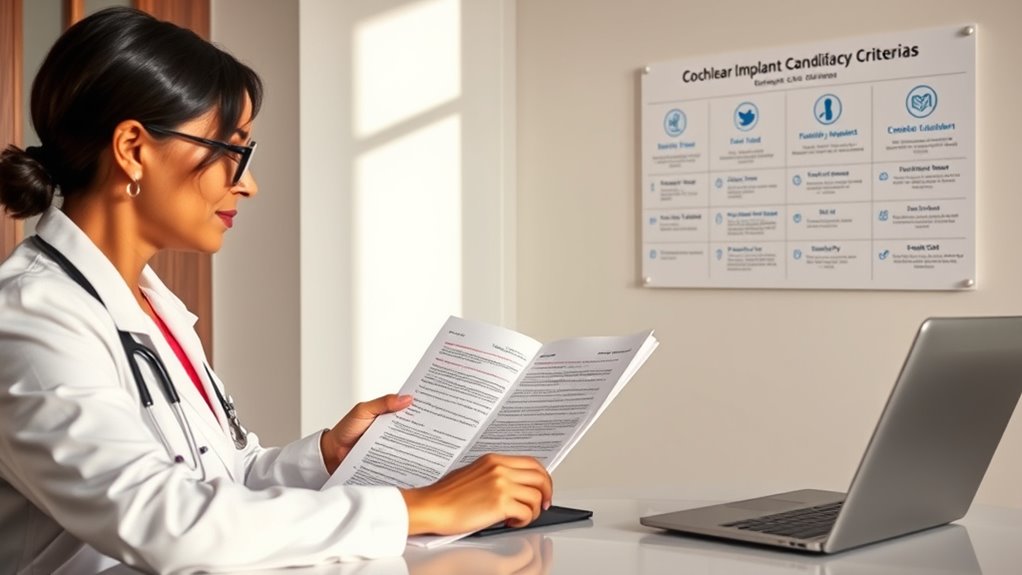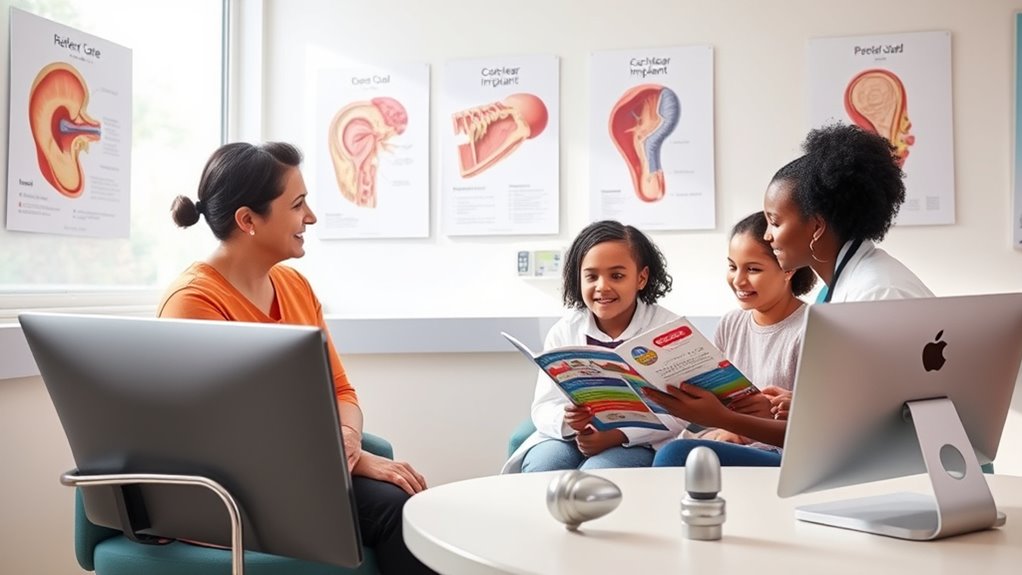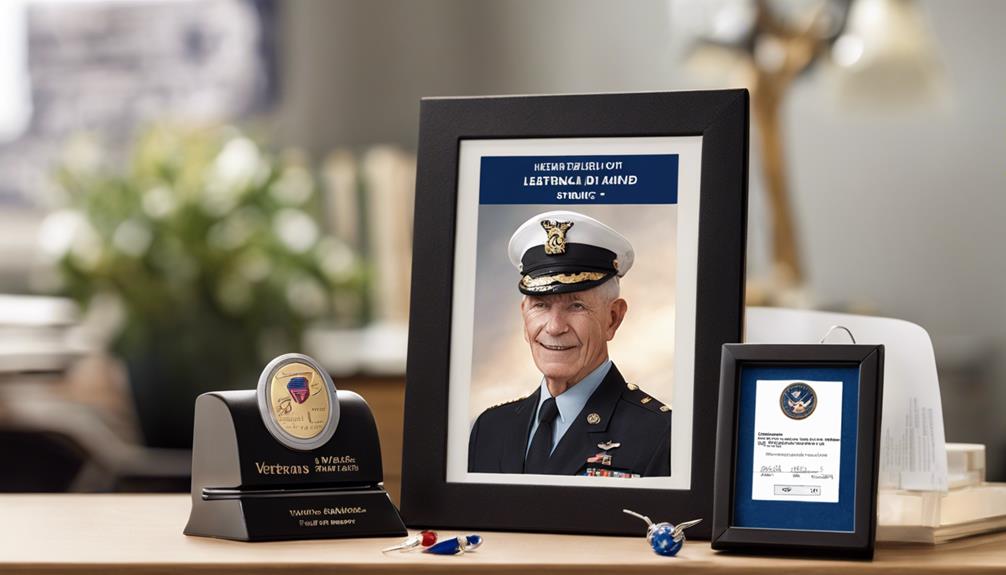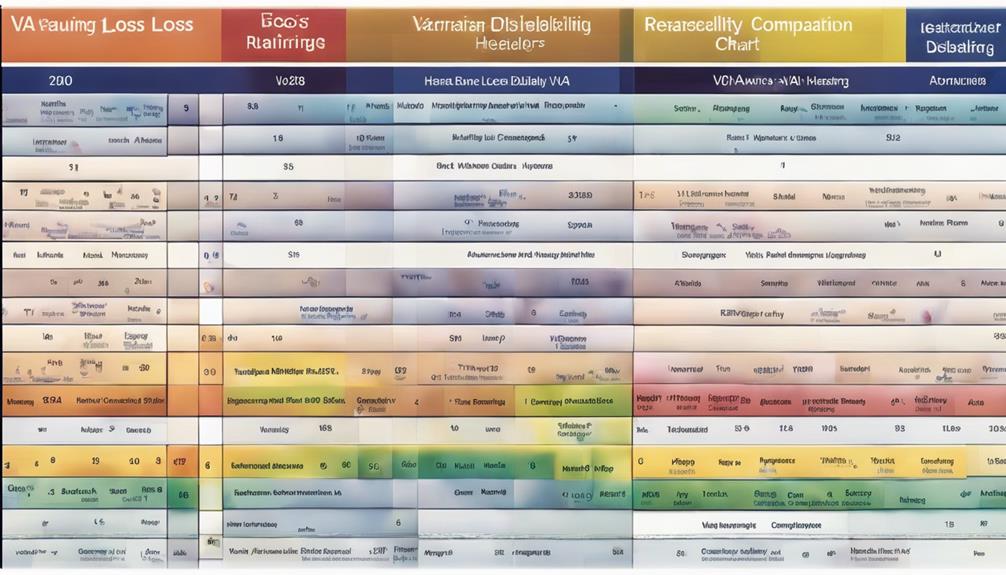If you’re involved in community care, start by identifying patients with severe hearing loss who don’t benefit enough from hearing aids. Make sure they get audiological and medical assessments, then coordinate referrals to audiologists and ENT specialists. Address barriers like transportation, costs, or language to improve access. Collaborate effectively with multidisciplinary teams, and provide clear info and ongoing support. To learn more about streamlining these referrals and improving patient outcomes, keep exploring these strategies.
Key Takeaways
- Confirm cochlear implant eligibility through audiological and medical assessments within community care settings.
- Coordinate multidisciplinary referrals involving audiologists, ENT specialists, and rehabilitation providers.
- Educate patients about the cochlear implant process, benefits, and postoperative care options.
- Address barriers such as transportation, cultural, and socioeconomic factors to ensure timely access.
- Facilitate communication and follow-up to streamline surgical scheduling and post-implant rehabilitation.
Understanding the Criteria for Cochlear Implant Candidacy

Understanding whether you’re a candidate for a cochlear implant involves evaluating your hearing loss and how it affects your daily life. Device candidacy depends on specific audiological assessments that measure your hearing ability, particularly in challenging listening situations. During an audiological assessment, your audiologist tests your hearing thresholds and speech recognition skills to determine if traditional hearing aids provide sufficient benefit. If your hearing loss is severe to profound and you derive little help from hearing aids, you may qualify for a cochlear implant. Factors like the duration of hearing loss, overall health, and personal communication needs play a role. This initial evaluation helps identify whether a cochlear implant could improve your hearing experience and quality of life. Additionally, understanding industry transformations like advancements in cochlear technology can influence your treatment options and expectations.
The Referral Process Within Community Care Settings

Once you’ve been evaluated and deemed a potential candidate for a cochlear implant, the next step is maneuvering the referral process within community care settings. You’ll need to coordinate with audiologists, ENT specialists, and rehabilitation providers to facilitate a smooth transition. Keep in mind that postoperative rehabilitation is vital for successful outcomes, so connecting with local speech therapists and audiologists early is beneficial. Be aware of technological advancements that could improve your experience, like improved sound processors or remote programming options. When making referrals, consider these steps:
- Confirm eligibility and necessary documentation
- Schedule initial assessments with specialized teams
- Coordinate surgical planning and postoperative care
- Arrange for postoperative rehabilitation services
- Stay informed about new technological options for better results
Additionally, understanding the importance of high contrast ratios in imaging can help you better appreciate the quality of visual aids used during rehabilitation. This approach helps optimize your journey toward hearing restoration.
Collaborating With Multidisciplinary Teams for Optimal Outcomes

Effective collaboration among audiologists, ENT specialists, speech therapists, and rehabilitation providers is essential to achieving the best outcomes for cochlear implant patients. Interdisciplinary communication guarantees everyone stays aligned on patient needs, treatment plans, and progress. Regular meetings and shared documentation facilitate this coordination, reducing delays and misunderstandings. By working together, you can optimize resource allocation, ensuring patients receive timely assessments, surgeries, and post-implant therapy. Clear roles and responsibilities help streamline workflows, preventing duplication or gaps in care. When team members respect each other’s expertise and communicate effectively, you create a seamless pathway from referral to rehabilitation. This integrated approach enhances patient satisfaction, improves auditory outcomes, and maximizes the benefits of cochlear implantation for those you serve. Incorporating team-based care principles fosters a supportive environment that benefits both patients and providers.
Overcoming Barriers to Timely Referrals

Timely referrals for cochlear implant surgery often face obstacles such as limited awareness, logistical challenges, and communication gaps among providers. Socioeconomic barriers can delay access, while cultural sensitivities may cause hesitation or misunderstandings. To overcome these issues, consider:
Address barriers through outreach, education, and cultural sensitivity to improve cochlear implant referral timely.
- Increasing community outreach tailored to diverse backgrounds
- Providing language-specific educational materials
- Collaborating with local organizations to build trust
- Addressing transportation and financial constraints
- Training providers on cultural competence and sensitivity
- Promoting empathy and understanding among healthcare teams to better serve diverse populations
Enhancing Patient Education and Support Throughout the Journey

To guarantee patients navigate the cochlear implant journey confidently, providing extensive education and ongoing support is essential. You empower patients by clearly explaining procedures, expectations, and recovery steps, fostering trust and reducing anxiety. Peer support plays a crucial role, offering shared experiences that inspire hope and resilience. Consider creating resources like support groups or mentorship programs to strengthen patient empowerment.
| Emotional Connection | Practical Support |
|---|---|
| Sharing success stories builds hope | Providing detailed guides eases uncertainty |
| Peer testimonials foster trust | Regular follow-ups show ongoing commitment |
| Feeling understood boosts confidence | Access to counseling and resources enhances journey |
Frequently Asked Questions
How Long Does the Entire Cochlear Implant Referral Process Typically Take?
The entire cochlear implant referral process usually takes several months. You’ll experience waiting times during initial assessments, device evaluations, and surgery scheduling. The insurance processes can also add to the timeline, as approvals and paperwork take time. Be prepared for variability depending on your location and healthcare system. Staying proactive and following up regularly can help guarantee the process moves smoothly and efficiently, minimizing delays.
Are There Specific Community Programs That Streamline Cochlear Implant Referrals?
Imagine a gentle stream guiding you smoothly toward your goal. Some community programs act like this stream, offering streamlined referral pathways for cochlear implants. These programs create clear, supportive routes, making the process less intimidating. By connecting you quickly to specialists, they help you navigate the journey more efficiently, ensuring you receive timely care and support on your path toward better hearing.
What Are Common Patient Concerns During the Referral and Evaluation Stages?
During the referral and evaluation stages, you often worry about emotional adjustment and financial concerns. You might feel anxious about adapting to the implant and how it will impact your life. Financial worries about surgery costs and ongoing expenses also come up. It’s normal to feel overwhelmed, but knowing your care team is there to support you helps ease these concerns. Preparing questions and understanding your options can make the process more manageable.
How Can Families Prepare Patients for Cochlear Implant Surgery Discussions?
Oh, preparing for a cochlear implant chat sounds easy, right? But really, it’s about helping your loved one with communication strategies and emotional preparedness. You can start by openly discussing their fears and hopes, and practicing how to ask questions confidently. Share stories of others who’ve gone through it, and reassure them that feeling nervous is normal. Your support makes a world of difference in facing this life-changing step.
What Follow-Up Support Is Available After Cochlear Implant Surgery Within Community Settings?
After cochlear implant surgery, you can access post-surgery counseling to help patients adjust and optimize hearing outcomes. Community resources are available for ongoing support, including auditory therapy and device maintenance. You should also focus on community resource navigation, guiding patients to local support groups, audiologists, and rehabilitation programs. These services guarantee patients receive continuous care, helping them adapt and thrive with their cochlear implants long-term.
Conclusion
Think of the referral process as a guiding lighthouse, illuminating the path for those seeking a new voice. When you navigate the criteria, collaborate seamlessly, and support patients, you help them find their way toward brighter, clearer horizons. Overcoming barriers is like clearing stormy skies, allowing hope to shine through. Your dedication turns a complex journey into a beacon of opportunity, empowering patients to reconnect with the world around them and rediscover their true voice.











